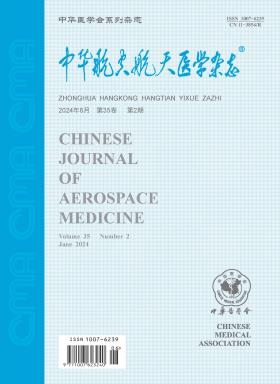Application of critical flicker fusion frequency and oculomotor measures in the evaluation of drug effects on central functions
引用次数: 0
Abstract
Objective To review the researches on the application of critical flicker fusion frequency (CFF) and oculomotor measures in the evaluation of drug effects on central functions.Literature resource and selection Relevant articles and monographs published in China and abroad.Literature quotation Seventy-six published references (73 papers and 3 monographs) were cited.Literature synthesis The research advances on the application of CFF and oculomotor measures in the evaluation of drug effects on central functions were reviewed.CFF measure was a simple and convenient method for central vigilance and fatigue evaluation.The main indices or parameters of oculomotor responsive measures were initial pupil diameter or area,constriction latency of pupil to light flash,amplitude of pupil constriction to light flash,saccadic velocity,saccadic amplitude,etc..Many studies at home and abroad showed that CFF and oculomotor responsive measures could be used for evaluating the central effects of following drugs:sedative hypnotics,histamine H1 receptor antagonists,antidepressants,central stimulants,alcohol,opiates and so on.Saccadic velocity was a sensitive index for assessing the sedative effects of these drugs.Pupil measures could be used for evaluating the awaking action of drug and its effects on autonomic nerve function,and were also sensitive to the central effects of alcohol and opiates.Conclusions CFF and oculomotor response measures have been widely applied in the evaluation of the central effects of different kinds of drugs and the medication safety for special population. Key words: Flicker fusion; Pharmaceutical preparations; Central nervous system; Review literature; Oculomotor responses临界闪烁融合频率和动眼力测量在药物中枢功能评价中的应用
目的综述临界闪烁融合频率(CFF)和动眼力指标在评价药物中枢功能作用方面的研究进展。文献资源与选择国内外发表的相关文章和专著。文献引用已发表文献76篇(论文73篇,专著3部)。综述了CFF和动眼力测量在药物中枢功能评价中的应用研究进展。CFF法是一种简便易行的中枢警觉性和疲劳评价方法。动眼力反应测量的主要指标或参数为初始瞳孔直径或面积、瞳孔对光闪收缩潜伏期、瞳孔对光闪收缩幅度、扫视速度、扫视幅度等。国内外大量研究表明,CFF和动眼力反应指标可用于评价镇静催眠药、组胺H1受体拮抗剂、抗抑郁药、中枢兴奋剂、酒精、阿片类药物等药物的中枢作用。眼跳速度是评价这些药物镇静作用的敏感指标。瞳孔测量可用于评价药物的唤醒作用及其对自主神经功能的影响,对酒精和阿片类药物的中枢作用也很敏感。结论CFF和动眼力反应法已广泛应用于各类药物的中枢效应评价和特殊人群用药安全性评价。关键词:闪烁融合;制剂;中枢神经系统;回顾文学;眼球运动的反应
本文章由计算机程序翻译,如有差异,请以英文原文为准。
求助全文
约1分钟内获得全文
求助全文
来源期刊

中华航空航天医学杂志
航空航天医学
自引率
0.00%
发文量
2962
期刊介绍:
The aim of Chinese Journal of Aerospace Medicine is to combine theory and practice, improve and popularize, actively advocate a hundred flowers bloom and a hundred schools of thought contend, advocate seeking truth from facts, promote the development of the related disciplines of aerospace medicine and human efficiency, and promote the exchange and penetration of aerospace medicine and human efficiency with other biomedical and engineering specialties.
Topics of interest for Chinese Journal of Aerospace Medicine include:
-The content of the journal belongs to the discipline of special medicine and military medicine, with the characteristics of multidisciplinary synthesis and cross-penetration, and mainly reflected in the aerospace industry, aerospace flight safety and efficiency, as well as the synthesis of special medicine, preventive medicine, environmental medicine, psychology, etc.
-Military aeromedicine (Air Force, Navy and Army aeromedicine) and civil aeromedicine, with a balance of aerospace medicine are the strengths of the journal.
-The change in aerospace medicine from a focus on promoting physiological compensatory adaptations to enhancing human performance under extreme environmental conditions is what the journal is helping to promote.
-The expansion of manuscripts in high altitude medicine is also a special emphasis of the journal.
 求助内容:
求助内容: 应助结果提醒方式:
应助结果提醒方式:


